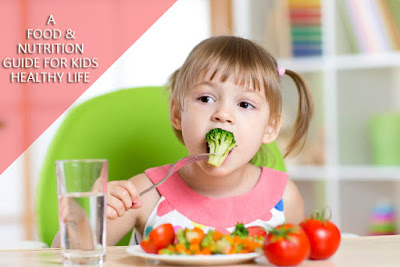Many kids have the tendency to eat more and due to that the ratio of childhood obesity is been increasing rapidly. And that’s because of the stuff kids are eating everyday i.e., over processed and fat food – means no nutritional value. Give natural sources of vitamins and minerals to your child.
 |
| Free Chat with Nutritionist |
Don’t battle over foods or use junk foods as a bribe for saying them to finish the food early. It’s OK if they have only little amount of food, make sure it’s healthy. And give them a dry fruit or a ragi + sesame seed ladoo or chocolate milkshake (homemade) post food which is healthy.
If your child is on any medication, ask the Doctor about drug interactions with some vitamins and minerals.
Few nutrients we need to give to every child which we call as ‘balanced diet’ which the child should get on daily basis:
Protein: Protein usually helps to build the body and breaks down food into energy, carries oxygen, increases immunity and fights with infection.
Best sources:
- Fish
- Chicken
- Eggs
- Dairy products
- Lentils
Carbohydrates: These days we get to hear the trend “cut the carbohydrates” which is not correct. In old days, carbohydrates were the main source and it’s an important source for energy. Carbohydrates help the child’s body to use fat and protein to build and repair tissues. But carbohydrates when we use should be complex not simple.
Best sources:
- Wheat bread or multi grain bread
- Oats
- Wheat crackers
- Brown rice
- Cereals (corn , ragi)
- Whole wheat pasta
- Potatoes
Fats: These are a great source of energy especially for kids and gets easily stored in a child’s body. It also helps the body to use some other nutrients properly.
Best sources:
- Whole milk dairy products
- Cooking oils
- Chicken
- Fish
- Nuts
- Seeds
- Cheese
- Butter
- Ghee
Calcium: Kids about 4 to 8 are not getting enough calcium, according to government statistics. Calcium helps in developing bone mass, which is nearly built during childhood and adolescence. If not taken care in childhood then the person can get affected by osteoporosis, specially girls and women. Many calcium rich foods are also rich in vitamin D which helps in strengthening the bones and also prevent type 2 dm. Parents actually give up easily when children reject breast milk, you need to keep trying till he gets older. Calcium helps to build a child’s bones and teeth healthy. It also helps in blood clotting, functioning of the heart.
Best Sources:
- Cheese
- Milk
- Yogurt
- Soy milk
- Egg yolks
- Spinach
- Tofu
- Spinach
Iron: Iron is important to build healthy blood which carries oxygen to cells and all over the body. Iron helps RBC carry oxygen to cells with whole body and plays a vital role in brain development.
Best sources:
- Red meats
- Liver
- Poultry
- Shellfish
- Whole grains
- Nuts
- Beans
- Figs and dates
- Shrimp
- Raisins
- Soy nuts
- Chickpeas
- Fortified cold and hot cereals (do check labels)
Folate: Good for the pregnant women and also very important for the kids. Folate is source of vitamins-B which is great for healthy growth and development of the cells of a child’s body. Deficiency of folate may cause anemia.
Best sources:
- Whole grain cereals
- Lentils
- Chickpeas
- Asparagus
- Black or kidney beans
- Spinach
Fiber: Though fiber is not digested, but still fiber is important for children because it keeps them full filling and helps in regular bowel movements. To add a point, eating fiber everyday may protect from chronic diseases in future.
Best Sources:
- High fiber cereal
- Fruits like raspberries, orange, apple, blackberries, kiwi, strawberries and pears.
- Beans & lentils
- Chickpeas
- Nuts
- Flaxseed
- Green peas
Vitamin A: Vitamin A helps to build, grow bones, great for eyes, keeps skin healthy and prevents infection.
Best sources:
- Carrots
- Broccoli
- Cabbage
- Egg yolk
- Spinach
- Apricot
- Fish oil
Vitamin C: Vitamin C is great for fighting common cold as it holds the body’s cells together helps to heal wounds, strengthens walls of blood vessels.
Best sources:
- Strawberries
- Tomatoes
- Potatoes
- Citrus fruits
- Amla
- Cauliflower
- Mangoes
- Papaya
Vitamin E: Kids under the age 8 miss their vitamin E needs. Vitamin E acts as antioxidant which protects cells from damage. Some Parents stop giving peanut butter as they are scared of nut allergies and if it’s like this, then swap 2 tbsp of sunflower seed butter instead of peanut butter as they get vitamin E needs.
Best Sources:
- Nuts
- Peanut butter
- Avocado
- Wheat germ
- Spinach
- Sunflower seeds
Potassium: Children get less dose of potassium usually, and this may be because of less fruits and veggies in their diet. Potassium is a key which maintains healthy fluid balance and helps muscles to contract. Pistachios contain the highest potassium content among all nuts.
Best Sources:
- Orange
- Banana
- White and sweet potatoes
- Cantaloupe
- Milk
- Yogurt
- Dried apricot
- Cod liver oil










Very informative one thanks for sharing..
ReplyDeleteThank You So Much...
Delete